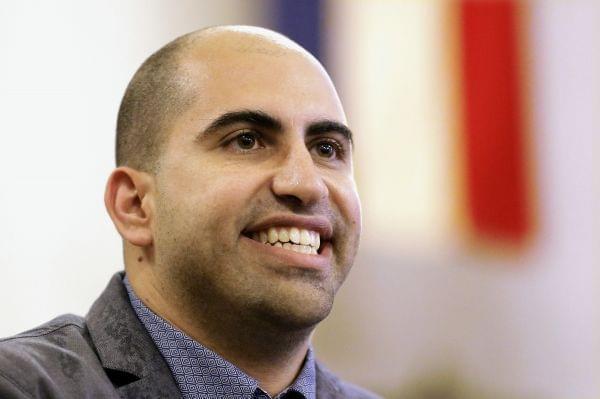Judge Orders U Of I To Release Salaita Emails

Salaita's lawyers filed a Freedom of Information Act request for emails documenting donors' influence on the Board of Trustees' decision to rescind Salaita's job offer last year. (AP Photo/Seth Perlman, File)
Champaign Circuit Judge Thomas Difanis ordered the University of Illinois to fulfill a Freedom of Information Act request that would make thousands of emails regarding the university’s hiring practices to be available to the public.
The lawsuit was filed on behalf of Steven Salaita, a professor whose job was rescinded last summer following anti-Israel tweets made on social media.
Since November, U of I has repeatedly denied the FOIA requests for the emails citing that producing the documents would be unduly burdensome.
Salaita’s attorney Anand Swaminathan said the issue was never about burden, but rather about access.
“As a practical matter, the university does have to prodice these documents to me in a federal litigation, but what the university is going to do if they get what they want is produce these documents through a protective order, and whatever they produce in litigation is not going to made available to the public and that’s what this case is about," said Swaminathan.
University Spokeswoman, Robin Kaler says there is a misunderstanding about the time it will take to redact and produce the requested documents.
“We’re talking about approximately ten thousand documents, and many of those are multiple pages and to actually redact them will take weeks and weeks.”
Swaminathan maintained that several thousand emails were petitions from websites like Change.org, and could be easily removed. He estimates that two FOIA coordinators working full-time could produce the documents within a week.
Judge Difanis explained that the public has a right to know about the hiring processes of a state funded university.
“This court finds that it is in the public’s interest, the hiring practices of the University of Illinois, the freedom of expression in the university setting. I’m going to grant the motion in favor of the plaintiff," Difanis said.
But attorney Charles Schmadeke of Hinshaw and Culbertson in Springfield, who is representing the university argued that the high profile case was mere "public curiosity."
"There is a huge difference between the public interest and publicity, or the public curiosity," said Schmadeke, "There has been no showing that the public's interest is going to be served by these documents."
At one point, Schmadeke compared Salaita to the Kardashians.
"The Kardashians generate a lot of publicity - it's not the same thing," said Schmadeke.
Schmadeke asserted that the university would still absorb the burden of the request in the absence of true public interest.
In closing remarks,the court acknowledged that fulfilling the request, would be an obvious burden to the university, but Difanis ruled that the university is a large enough entity with resources to hire staff to make this information public.
